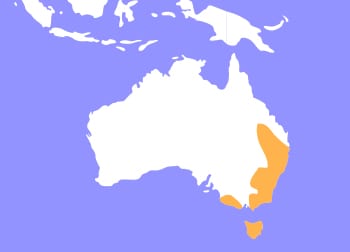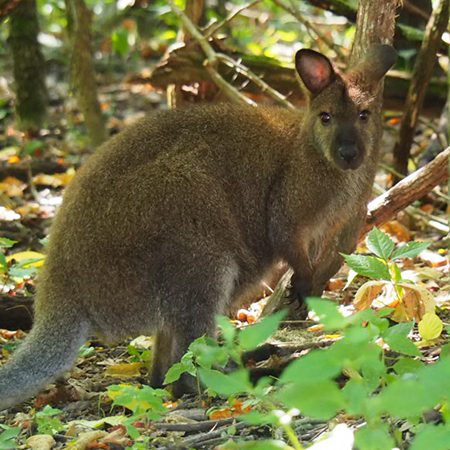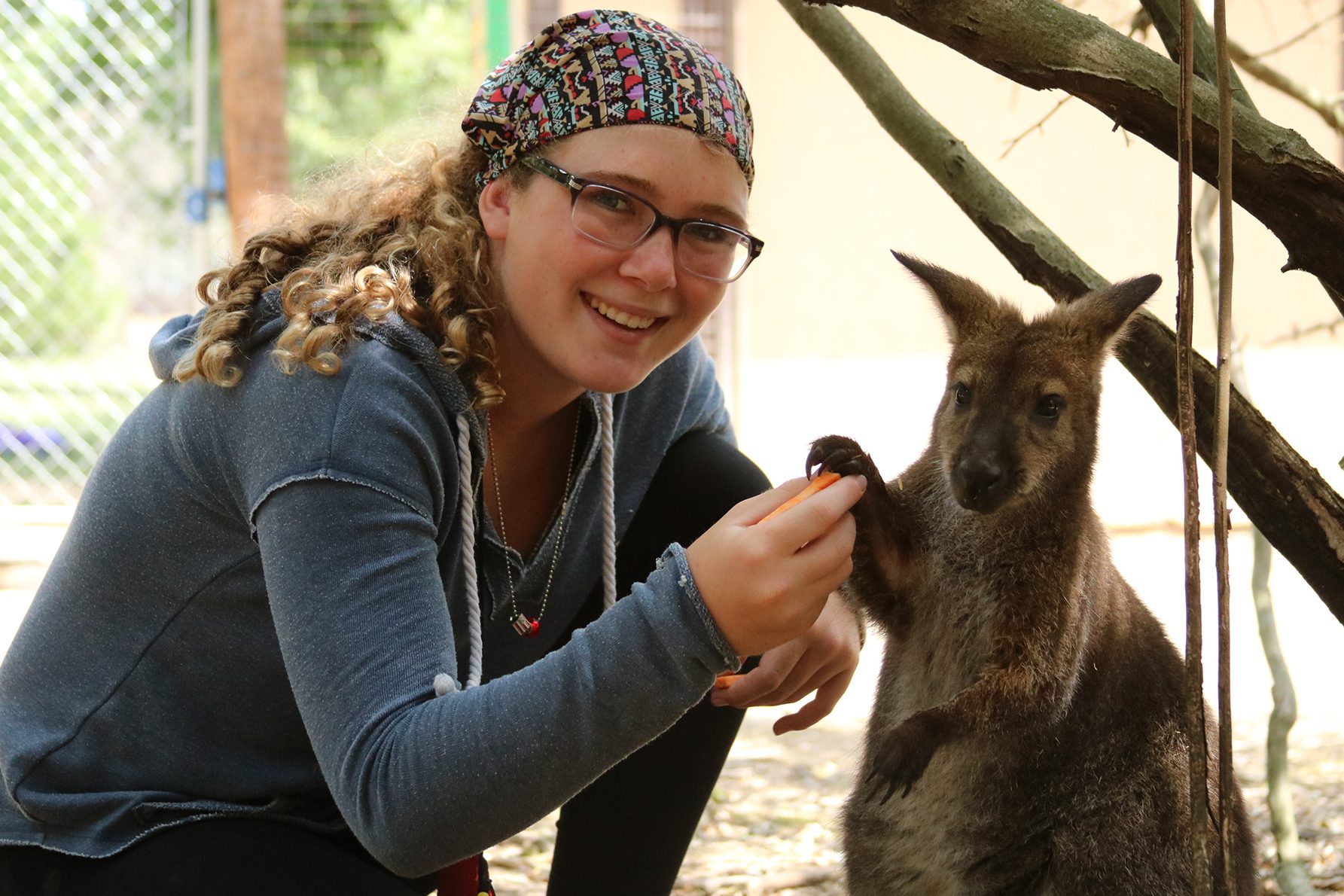Bennett Wallaby
Macropus rufogriseus
Bennett’s Wallabies are also known are the red-necked wallaby, a medium-sized macropod marsupial. They are very common in the temperate and fertile parts of eastern Australia, including the island of Tasmania. These wallabies can be found living and feeding along coastal forest and scrubs. Bennett’s wallabies have been introduced to several countries including European countries of England, Scotland, Ireland, and France.
Bennett’s wallabies are mainly solitary but will gather together if there is an abundance of resources such as food, water, or shelter. When they are gathered in larger groups, they have a social hierarchy similar to other wallaby species. They are mainly nocturnal and spend most of the daytime resting. Bennett’s wallabies have a herbivorous diet consisting of grasses, roots, tree leaves and weeds.
During courting / mating season, these wallabies will break their solitary living habits. A part of this courting process involves the male and female standing upright briefly fighting. The couple will stay together for one day before separating. Females bear one offspring at a time; with the young staying in its mother's pouch for 280 days. After emerging from the pouch, females and their offspring stay together for a month. These wallabies have been known to engage in alloparental care, meaning one wallaby may adopt the child of another.

Bennett Wallabies are common across Eastern Australia and Tasmania. They've also been introduced to several countries in Europe.
HABITAT -Temperate parts of the eastern coast of Australia, inhabiting forest and shrubland.
DIET -They are herbivores, with a diet consisting of grasses, roots, tree leaves and weeds.
FUN FACT -Known for hopping, they can also crawl and swim!
SOCIAL BEHAVIOR -Mainly solitary, except in mating season where they will pair for a short period.
ACTIVITY -Bennetts wallabies are nocturnal, meaning they are active at night and rest during the day.
PREDATORS -Predators of Bennett’s wallabies include dingos, foxes and large reptiles.
SIZE -They weigh between 30 - 40 lbs on average and grow anywhere from 3 - 6 feet tall.
RELATIVES -Macropodidae is a family of marsupials, known to have kangaroos, wallabies, tree-kangaroos and more!
CONSERVATION -Bennett’s wallabies are considered LC (Least Concern) according to the IUCN.
Cub Creek Animal Care Information
Housing - Our Bennett’s Wallabies are spread out amongst three large outdoor / indoor enclosures. All of them provide large amounts of lush grass, brush, and trees to simulate a natural forest environment. They have automatic water dispensers in their enclosures ensuring fresh water at all times. There are also covered shelters, bedded with shavings within the outdoor enclosures. When bottle raising wallabies, they are kept in pouches to simulate a natural environment. They are raised with the comfort and love our our director team.
Diet - Happy Hopper is a main staple in our wallabies diets. This is a food supplement with a special blend of whole cereal grains, protein, minerals and vitamins. This food is fortified with added vitamin E and selenium. They also receive a variety of greens, diced sweet potato, and rabbit pellets. When bottle raising wallabies, Esbilac milk is given to them. This milk gives them milk proteins they need along with vitamins, minerals, and amino acids to help their bodies grow and develop properly.
Enrichment - Our Bennett’s Wallabies receive plenty of one-on-one socialization with campers during the summer and our animal team in the off-season. We often scatter feed to encourage animals to fill their time foraging for food. Campers will sometimes make enrichment toys, fruit popsicles and other special treats for our wallabies!


